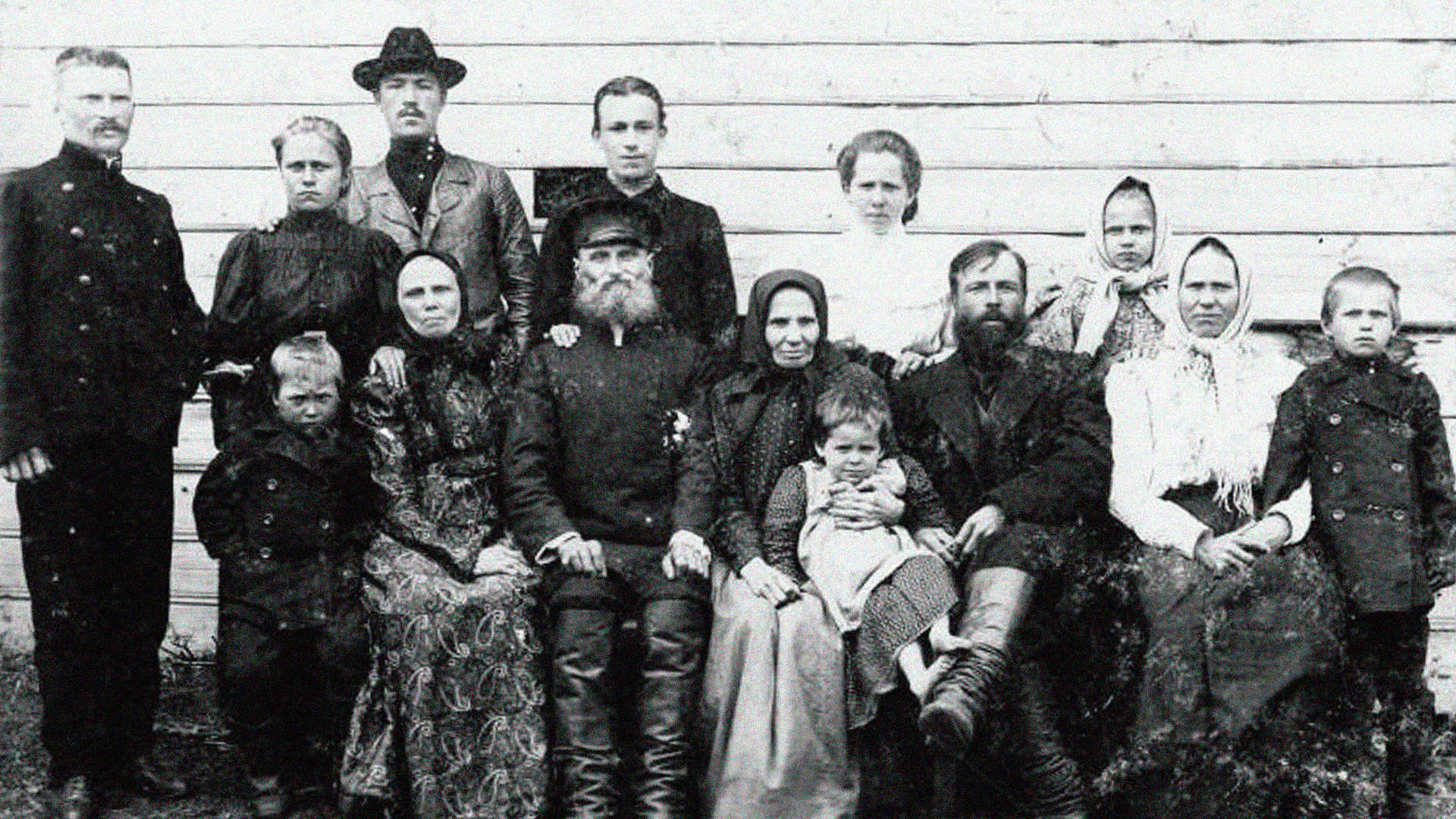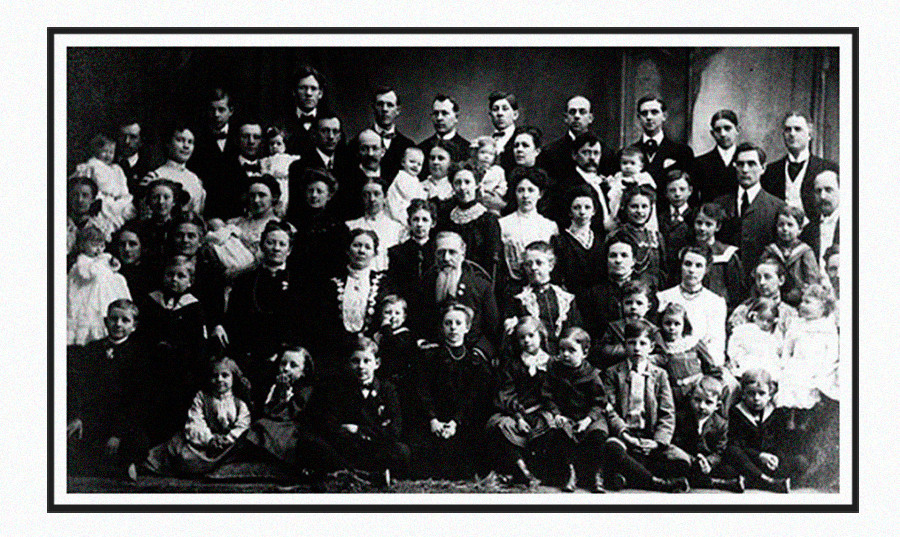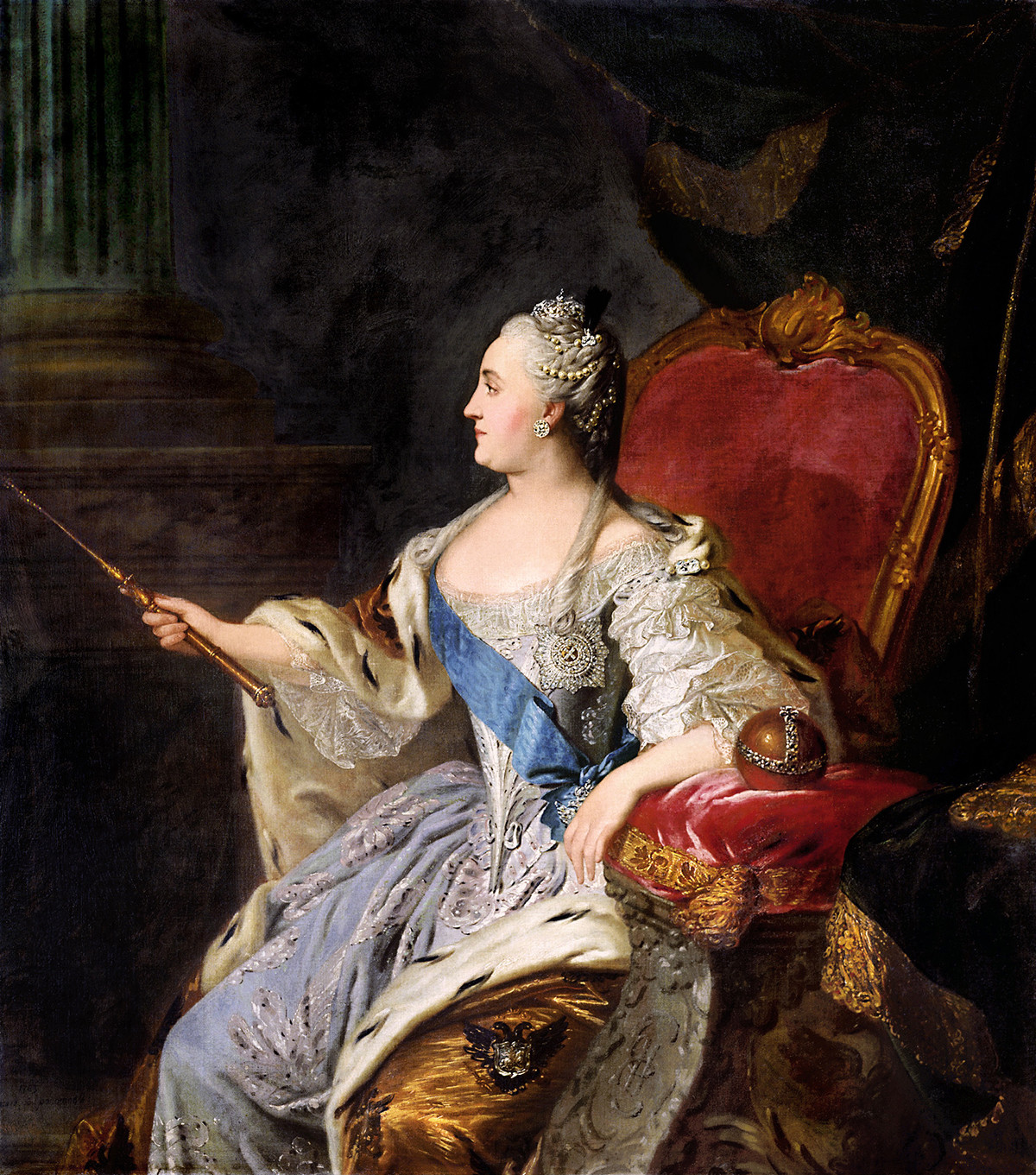
Family portrait
Unknown author/MAMM/MDFFyodor Vasiliev was himself born in 1707 into the family of a serf attached to the Nikolo-Shartomsky Monastery (Ivanovo Region, 321 km from Moscow). Having spent his childhood in the village of Vvedenye, not far from the monastery, he was later transferred to the ranks of ‘state serfs’ (those who bore duties for the state), settling at Kufrino farm still in Ivanovo Region.
At the age of 18, Vasiliev married for the first time. The name of the first wife is unknown, but sources suggest it was Valentina or Feodora. They lived together for 40 years. From 1725 to 1765, Fyodor’s wife gave birth 27 times, producing 69 children in total: 16 pairs of twins, 7 sets of triplets and 4 sets of quadruples. Remarkably for those times, it seems that only two died in infancy, while the rest survived to adulthood.

Family portrait
Public DomainIn 1765, after the death of his first wife, Fyodor, now 58, married a second time, to a woman by the name of Anna. She bore him 18 children: 6 pairs of twins and 2 sets of triplets.
Some of the children were given up to be raised by childless couples. Part of the family moved to Moscow and enjoyed state patronage, wrote British medical journal The Lancet in 1878. According to the website Cyrillitsa.ru, experts believe there could be as many as 80,000 descendants of Vasiliev on the planet today.
In 1782, the Archbishop of Vladimir learned about the Vasilievs’ exploits in the bedroom, whereupon he informed the empress, Catherine the Great.
The family was even received by the empress in person, and Vasiliev, as the head, was rewarded for his contribution to the demographics of the Russian Empire.
An English trader then resident in St Petersburg also found out about it and informed the British press. That is how an article about the Vasilievs appeared in British publication The Gentleman’s Magazine in 1783.
Catherine greatly enjoyed discussing the family in correspondence with influential Western figures. Russian historian Ivan Boltin also cited the Vasilievs in correspondence with French naturalist Georges-Louis Leclerc in 1788, when the latter asserted that the Russian people were not fertile.
Geneticists have suggested that Fyodor Vasiliev possessed a “multi-child” gene, according to Cyrillitsa.ru. However, some academics question the veracity of Vasiliev’s story.
“It sounds fantastical. I mean, 69 kids? C’mon!” said James Segars, director of the Division of Reproductive Science and Women’s Health Research at Johns Hopkins University, in an interview with the BBC.

Catherine II
Tretyakov GalleryDr Jonathan Tilly of Northeastern University questioned the number of multiple conceptions based on the fact that in those days the birth of even one child was a difficult process. “Even just the 16 sets of twins? I’d be shocked,” comments Tilly.
According to scientists, many more of the children would likely have died at birth, given the state of medicine in the 18th century.
If using any of Russia Beyond's content, partly or in full, always provide an active hyperlink to the original material.
Subscribe
to our newsletter!
Get the week's best stories straight to your inbox